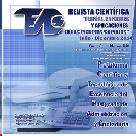Human development and ecobusiness : approaches to a green company case: United Distilleries Corporation , S.A. ( DUSA)
Keywords:
human development, econegocio, green companyAbstract
This article generated from a phenomenological- hermeneutical investigation concluded (Barradas, 2013), in which it was proposed to derive interpretive theoretical elements of human development and approaches to econegocio as a green company, United Breweries Corporation, S.A. (DUSA), the Bolivarian Republic of Venezuela. The methodological condition developed in the interpretation of emerging subcategories from the following units: human development, and green econegocio company. This information was sought through the testimony focused on six social actors, however, for purposes of this article only refers to the findings derived from one social actor manager of this reality. Staff training, continuous improvement from the social benefits, values of solidarity and cooperation, mobilization ecological ethic as future business model, productive and economic side, constant innovation and international accreditation ISO 14001: In the framework of social construction of the categories identified and only green company in Venezuela, this in relation to the events of significance associated with the phenomenon of study. The reflections project to the attention of the business cluster to open production scenarios can be identified with econegocio, to monitor the ethical sense of internal organizational behavior conglomerate with a system of balanced relations in sustaining ecosystems and the social benefits.
Downloads
References
Barradas, Gustavo. (2013). Responsabilidad social corporativa como círculo virtuoso ético-ecológico en la sociedad del conocimiento. Tesis doctoral no publicada. Universidad Fermín Toro. Cabudare, República Bolivariana de Venezuela.
Bermejo, Roberto. (2005). La gran transformación hacia la sostenibilidad. Principios y creyeron de economía sostenible. España, Madrid: Catarata.
Brack, Antonio. (2000). Diversidad biológica y mercados. En: Hurtado, I.; Trivelli, C y Brack, A. (2000). Perú. El problema agrario en debate. Perú, Lima: Seminario Permanente de Investigación Agraria. 443-502.
Caldas, María.; Castellanos, Aurora e Hidalgo, María. (2011). Empresa e iniciativa emprendedora. España: EDITEX.
Cumbre Mundial sobre Desarrollo Sostenible. (2002). Financiamiento para el desarrollo sostenible en América Latina y el Caribe. Johannesburgo: Naciones Unidas.
Etkin, Jorge. (2007). Capital social y valores en la organización sustentable. El deber ser, poder hacer y la voluntad creativa. Argentina, Buenos Aires: Gránica. ·
Guitart, Moisés. (2010). Geografías del desarrollo humano. Una aproximación a la psicología cultural. España: Aresta.
González, Elsa. (2010). La contribución de la empresa como factor de desarrollo humano. En: Arenas, F. (2010). (Coord.). Ética del desarrollo humano y justicia global. Instituciones y ciudadanos responsables ante el reto de la pobreza. España, Valencia: Nau Libres. 505-512.
Ibáñez, Javier. (2004). (Coord.). Responsabilidad social de la empresa y finanzas sociales. España, Madrid: Akal.
Laviña, Jaime. (2011). Acta europea PYME. 10 principios. 20 experiencias. Estudio sobre el posicionamiento de la pyme española ante el acta europea de la pequeña y mediana empresa. España, Madrid: Fundación Escuela de Organización Industrial.
Lipovetsky, Gilles. (2008). El crepúsculo del deber. La ética indolora de los nuevos tiempos democráticos. Segunda Edición. España, Barcelona: Anagrama.
Mariñez, Freddy. (2009). (Coord.). Compromiso ciudadano. Participación y gestión pública en Nuevo León. México: Nuevo León.
Martínez, Horacio. (2008). Responsabilidad social y ética empresarial. Colombia, Bogotá: Ecoe.
Melo, Vladimir.; Machicado, Javier y Miranda, Néstor. (2005). (Coords.). Identidades 10. Colombia, Bogotá: Norma.
Matilla, Kathy. (2010). Conceptos fundamentales en la planificación estratégica de las relaciones pública. España, Barcelona: Universidad Oberta de Cataluña.
Mondy, Wayne y Noe, Robert. (2005). Administración de recursos humanos. Novena Edición. México: Pearson Educación.
Muñoz, Jacobo y Faerna, Ángel. (2008). Caminos de la hermenéutica. España, Madrid: Biblioteca Nueva.
Norma Internacional ISO 14001. (2004). Sistema de gestión ambiental. Requisitos con orientación para su uso. Suiza.
Siliceo, Alfonso. (2004). Capacitación y desarrollo del personal. México: Limusa.
Velázquez, Manuel. (2006). Ética en los negocios. Conceptos y casos. Sexta Edición. México: Prentice Hall
Published
How to Cite
Issue
Section
Derechos del/de autor/es a partir del año de publicación
Esta obra está bajo la licencia:
Creative Commons Reconocimiento-NoComercial-CompartirIgual 4.0 Internacional (CC BY-NC-SA 4.0)
Las opiniones expresadas por los autores no necesariamente reflejan la postura del editor de la publicación ni de la UCLA. Se autoriza la reproducción total o parcial de los textos aquí publicados, siempre y cuando se cite la fuente completa y la dirección electrónica de esta revista. Los autores(as) tienen el derecho de utilizar sus artículos para cualquier propósito siempre y cuando se realice sin fines de lucro. Los autores(as) pueden publicar en internet o cualquier otro medio la versión final aprobada de su trabajo, luego que esta ha sido publicada en esta revista.



